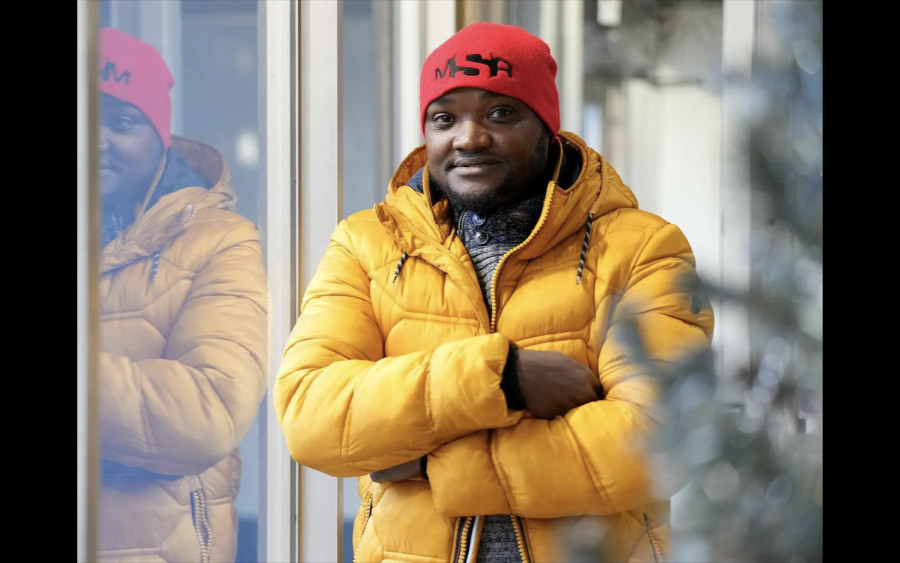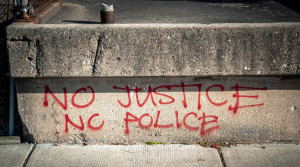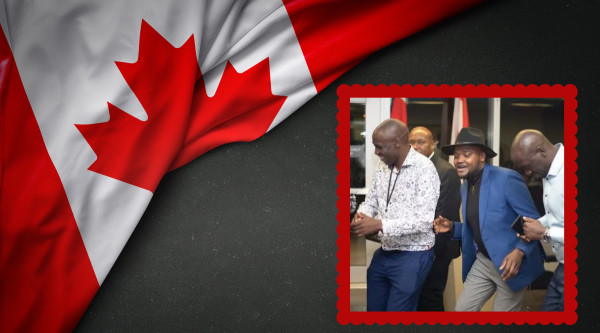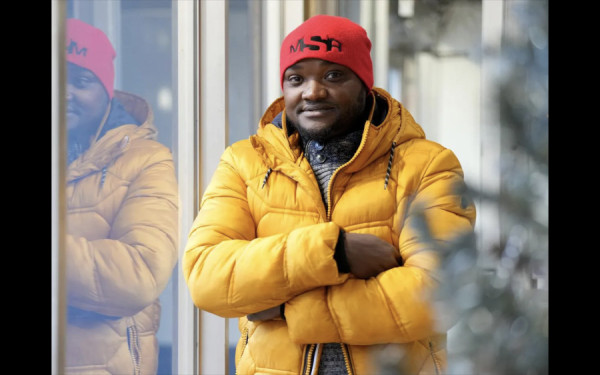Often the experience of immigration to Canada, and working to become a Canadian is riddled with so many institutional hoops, that many feel they entered a circus rather than a country dedicated to multiculturalism.
This is the case with John Mulwa, a Kenyan refugee who came to Canada in 2014 to escape violence and find job opportunities. After eight years in Canada as a chef, his refugee application has been denied and is scheduled to fly back to Kenya, a place where he fears for his life.
“It’s very dangerous for me in Kenya, and I’m worried if I go back I might be killed,” said Mulwa.
According to Immigration, Refugees and Citizenship Canada (IRCC) they cannot release details about Mr. Mulwa's case for privacy issues, leaving a community wondering why this is happening at a time when the Liberal government professes to desperately need people like Mr. Mulwa.
Canada: One Country, Many Peoples
In 1988, the Government of Canada enshrined the idea of one country, many peoples into its laws with the Multiculturalism Act. The first of its kind in the world, the act codified the commitment of the government to promote a diverse, inclusive and multicultural society in Canada.
Signed by Brian Mulroney, but first advocated by Trudeau Sr. the law has defined Canada both at home and abroad, giving our country a sparkling image on the world stage. Well aware of the divisiveness of culture in Canada, both from unsettled Aboriginal issues and Québécois nationalism, Pierre Trudeau saw multiculturalism as the only way to assure cultural freedom in such a divided country.
“The Government will support and encourage the various cultures and ethnic groups that give structure and vitality to our society.” - Pierre Elliot Trudeau
It is this dedication to multiculturalism that has propelled Canada as a preferred destination for migrants, and with the constant political drama in the US, Canada has even overtaken the land of ‘milk and honey’ as the preferred spot for work relocation according to the Boston Consulting Group. Much of this interest in migration is from Africa.
Chef Mulwa
Known lovingly as ‘Chef Mulwa’ within the community, Mr. Mulwa has been giving back to his new home in Hamilton, Ontario. Earlier this year Mr. Mulwa lead an initiative to repatriate the body of Helen Wendy, a young Kenyan health worker who drowned in August while live-streaming on Facebook. Just the latest act by a man dedicated to helping. In 2018, he stepped up to provide at-home care to another recent Kenyan immigrant who was recovering from a major surgery.
“He took very good care of me, even taking care of my shopping and cooking until I was well … I consider Mulwa my son.”
{https://www.youtube.com/watch?v=g0CTu3KHVJc&t=20s}
Mulwa came to Canada and immediately understood, and embraced multiculturalism, using his skills as a chef to empower others to learn about farming crops native to his homeland. He’s become locally famous in Hamilton as the first person to grow white corn, a favourite in Kenya.
Mulwa partnered with Murphy’s Country Produce in Binbrook, Ontario to introduce African vegetables like kunde, cowpeas and sukuma wiki (collard greens/kale), to the usual Canadian staples. Generations of families from across Ontario visited the farm to gain new knowledge with an intercultural approach.
Are These Canadian Values?
The Canadian Border Services Agency has enforced more than 18,000 removals to at least 150 countries in the last two years. According to the Canadian Immigration Alliance, officers of the CBSA can enforce a removal order for a number of credible reasons, but also for arbitrary and broad goals:
A number of different scenarios can lead to removal from Canada. To name a few:
• Your refugee claim was denied;
• You entered Canada as a visitor, and you overstayed your status;
• Your humanitarian and compassionate application was refused;
• You are a permanent resident of Canada, but you committed a crime, and you lost your removal order appeal;
• Your Pre-Removal Risk Assessment application was refused;
• You were supposed to attend an interview at CBSA but failed to show up;
There is no evidence that John Mulwa has broken any of these rules, so we need to ask why? Mr. Mulwa’s lawyer Lucas Mirera had this to say:
“Sometimes applicants, because of language and culture, can make very genuine mistakes on their applications, and I believe John is a victim of that.”
There are few who will argue a country should not have the right to remove non-citizens from its territory, but Canada’s process of removal is exceptionally random and provides too much power to officers of the Canadian Border Services Agency.
What is happening to Mr. Mulwa is happening to Black and Brown immigrants daily, and will continue so long as extraordinary powers are given to some officers, who may not understand how difficult it is for immigrants to navigate Canada’s immigration process.
If those officers were part of Mr. Mulwa’s’ community maybe they could see just how necessary he is in Hamilton, and if the community could understand why Mr. Mulwa is being removed they could help remedy the situation. But immigration is a top-down and heavy-handed institution. That must change for Canada to truly embrace multiculturalism.
Until then, there is a petition to fight his deportation, but we fear it may be too late. The CBSA has ordered him to meet them with a plane ticket back to Kenya on the 19th of December. Deporting Mr. Mulwa to potential violence has moral implications, but it is also against Canada’s self-interest to refuse residency to a man who embodies the nation's values of politeness, intercultural sharing and helping out a neighbour.

 By
By 







